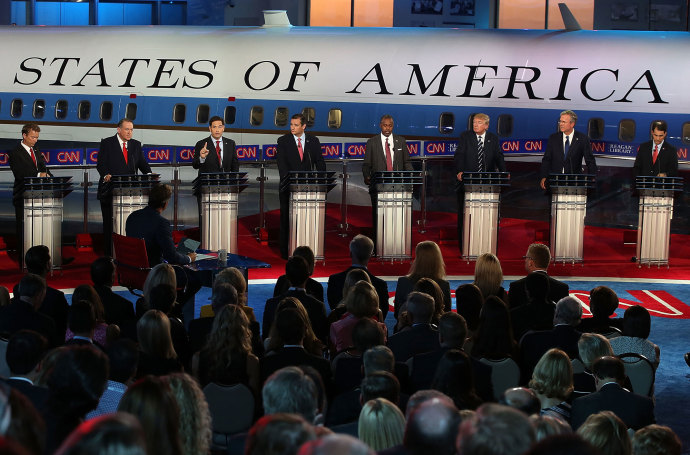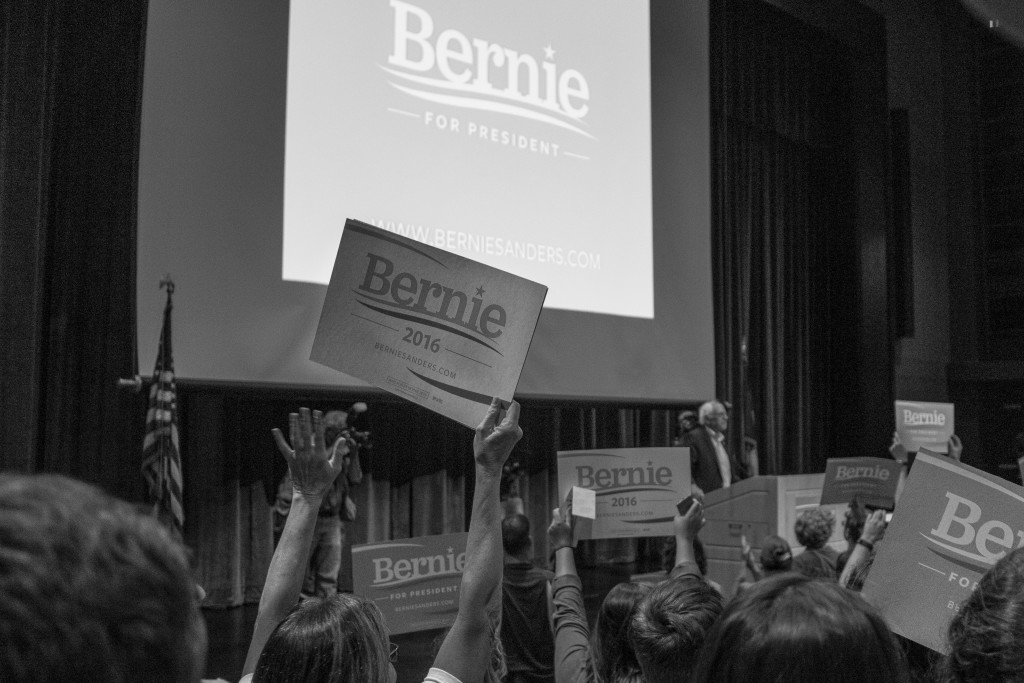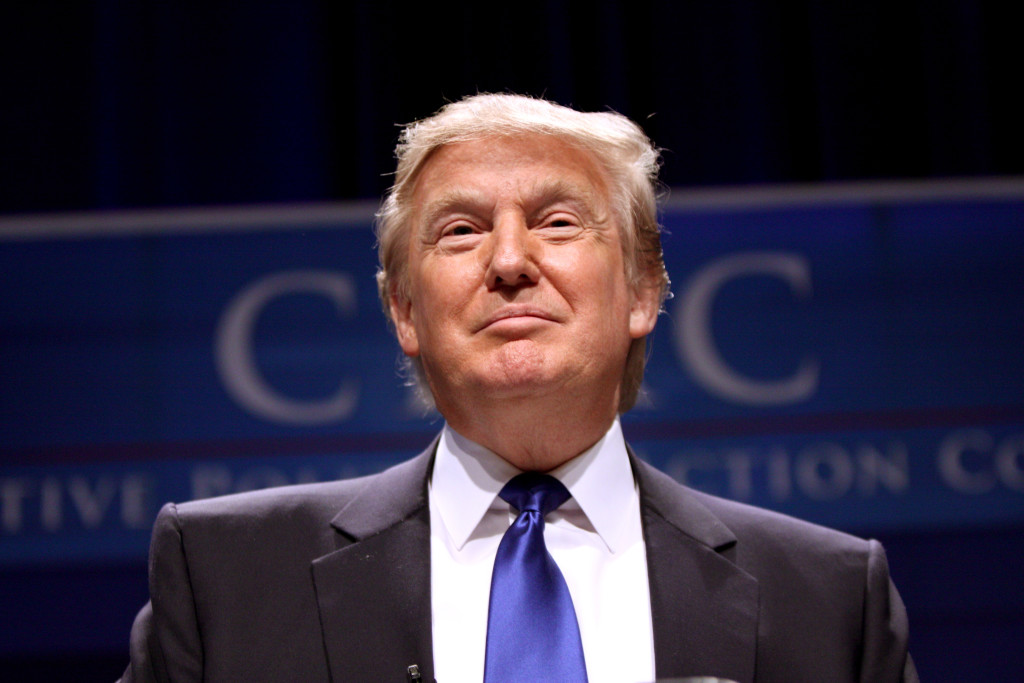Anti-establishmentarianism and American Politics: The Rise of the “Anti-Party” Candidates


As the 2016 American Electoral campaign builds up speed, a curious trend has developed in the primary races in both of the major parties. To be sure, it is still very early to begin talking of any significant outcomes of the coming election; the primary elections will not begin for another four months and American citizens will not know who will officially be the party candidates for the general election in November 2016 until next summer. However, as the candidates of both parties knock heads and jostle each other in efforts to improve their position, some interesting trends appear. In particular, the success of less than typical candidates has suggested a change in voter preference for the so-called “anti-party” platform.
According to the latest polls, the Republican Nomination race is being led by Donald Trump, Ben Carson and Carly Fiorina in descending order. The curious similarity among all of them is that they are the only candidates (out of 17) on the Republican ticket that have no experience in the US Congress or as state governors. Rather than this hurting their success in the race, they use this to their advantage and distance themselves from their more established political counterparts. It is this separation from the US political engine that dubs them “anti-party” candidates. Trump, a successful business man, has dropped somewhat from his position in mid-September but he continues to lead the rest of the field by a sizable margin. Although both Carson, a former neurosurgeon, and Fiorina, the former CEO of Hewlett-Packard, trail Trump by a respectable amount, their lead over their gubernatorial and Congressional counterparts is clear at this point in time.

The success of anti-party candidates in the 2016 electoral campaign is not unique to the Republican Party. Democratic candidate Bernie Sanders has also experienced an influx of support in the past months and, though he differs from his Republican counterparts in many respects, there is a sense in which Sanders could be called an anti-party candidate. It is important to note that Sanders is a member of the US Senate and is involved with the political system in a much clearer sense than Trump, Carson, or Fiorina are. He also is not, by any stretch of the imagination, leading over his fellow Democrats in the Democratic nomination race; former Secretary of State Hillary Clinton has had a well-established lead over her counterparts since the beginning of her campaign and, despite some falls in popularity, she still holds strong. Sanders, nevertheless, still fits the narrative of an anti-party candidate because his political platform is less than traditional for the Democrats. He has self-identified as a socialist (a statement that would have spelled political suicide in the US in the very recent past), and lacks the political connections and fiscal wealth that Hillary has. Time and time again, Sanders has stressed that he is distinct from the typical presidential candidate in his abstinence from donations on the behalf of wealthy political backers. His funding has come from small donations and, though one would think such a position would put him at a disadvantage with respect to his ability to reach out to America through ads and other traditional methods of garnering support, he has experienced greater support than most other established candidates with access to wealthy purses.
The question, of course, is why these candidates are experiencing such success now. It is indeed unexpected that they should experience such success particularly within the major political parties. Independent candidates and anti-party candidates are nothing new to the American political system, and traditionally speaking, they have a difficult time establishing themselves. Said candidates often fail to rise to the top of the ballot for the established parties or, given the clear two-party dominance in US politics, fail to gain any shred of significant votes in the general election. Simply speaking, the system benefits those who have already established themselves politically within a particular party and have access to friends and support within the political system, be it in the executive or legislative branch.

This electoral season, however, promises to be different. Theories abound, but the general sentiment is that a poor economic recovery from the 2008 crisis and the political gridlock in Congress have suggested to the American public that the traditional brand of politician is simply unable to effectively deal with the problems facing the world today. A focus group set up by American political consultant and pollster Frank Luntz found that Trump’s message and persona resonates with frustrated voters in a way that few other candidates’ messages do. There is a clear sense in Republican voters that the traditional brand of politician can offer them nothing but lies and produce only broken promises. On the other side of the political spectrum, it is not outlandish to suggest that the failed Obama campaign promises and the recent Clinton email scandal account for at least some part of Sander’s popularity. The solution, it seems, would be to look outside the established party lines and find a new candidate, one not tainted by the inefficacy of Congress. Trump, Carson, Fiorina, and Sanders all fit that rhetoric.
The significance of this ostensible change in voter preference is not clear. Some might challenge that this period of popularity of anti-establishment candidates is a fad of sorts that will subside as the campaign proceeds. Indeed, many have suggested precisely that. Furthermore, early polls do little in accurately predicting the results of the primary races and cannot say with certainty anything remotely significant about the general election. Presidential hopeful Ron Paul, for example, was seen as an anti-establishment candidate in the 2012 election and experienced a great deal of support on the Republican ticket. However, he ultimately failed to win the nomination. Yet this cycle is different. Paul was a strongly supported candidate but he never led the field; certainly not in the same respect that Trump does. Furthermore, many had promised that Trump’s appeal would wane as the campaign dragged on and yet he continues to lead the race today. In fact, his lead has only grown as time progressed.
Will the current trends continue up until the primaries? Will we see a Trump/Sanders faceoff in the general election? It is not sure and a little unlikely given the strong hold Hillary has over the rest of the Democratic field. However, the current trends do suggest that voter preference has changed in the US and that there are lessons that the Democrat and Republican leadership would do well to note.
